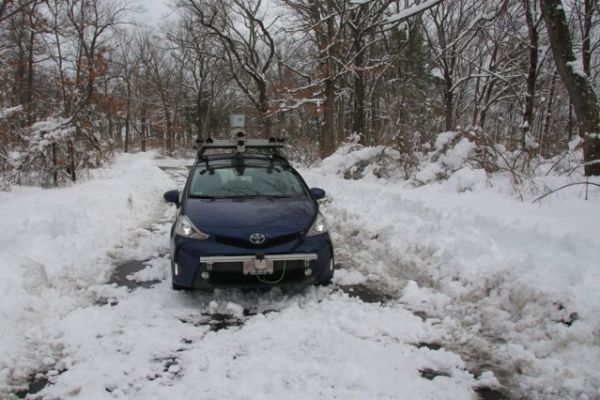Car companies have been feverishly working to improve the technologies behind self-driving cars. But so far even the most high-tech vehicles still fail when it comes to safely navigating in rain and snow.
This is because these weather conditions wreak havoc on the most common approaches for sensing, which usually involve either lidar sensors or cameras. In the snow, for example, cameras can no longer recognize lane markings and traffic signs, while the lasers of lidar sensors malfunction when there’s, say, stuff flying down from the sky.
MIT researchers have recently been wondering whether an entirely different approach might work. Specifically, what if we instead looked under the road?
Read more at Massachusetts Institute of Technology
Photo: MIT's new system allows a self-driving car to situate itself in snowy conditions.
Photo courtesy of the researchers


